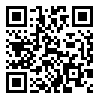
Journal of Emergency Health Care
Formerly known as: International Journal of Medical Investigation

Volume 14, Issue 1 (2-2025)
J Emerg Health Care 2025, 14(1): 0-0 |
Back to browse issues page
Download citation:
BibTeX | RIS | EndNote | Medlars | ProCite | Reference Manager | RefWorks
Send citation to:



BibTeX | RIS | EndNote | Medlars | ProCite | Reference Manager | RefWorks
Send citation to:
Soltani G, Nobahar Z. Investigating the Effect of Family Therapy on Depression and Job Burnout of Divorced Nurses. J Emerg Health Care 2025; 14 (1) : 9
URL: http://intjmi.com/article-1-1240-en.html
URL: http://intjmi.com/article-1-1240-en.html
, Master Of General Psychology, Ahrar Institute Of Technology And Higher Education, Rasht
Abstract: (1625 Views)
Purpose: The purpose of this study is to investigate the effect of family therapy on depression and job burnout of divorced nurses.
Method: The statistical population includes all divorced nurses in Tehran hospitals, 30 nurses were selected by the available random method and 15 people were in the experimental group and 15 people were in the control group. The research design was pre-test-post-test with a control group. The research sample responded to the research tools including Mezlach's burnout questionnaire (1981) and Lavibond and Lavibond's (1995) depression, anxiety and stress questionnaire. Analysis of covariance (MANCOVA) method was used to analyze the data.
Findings: The results of data analysis showed that family therapy reduced depression and job burnout among divorced nurses in the experimental group compared to the control group.
Conclusion: In this research, it was found that family therapy is effective in reducing depression and job burnout of divorced nurses by changing vulnerable thoughts and beliefs about family support. Divorced nurses may have negative and vulnerable beliefs about the role of family in their lives due to past experiences or lack of support. Family therapy helps them to reconstruct these beliefs and develop a more positive perspective on family support. By creating a safe space for discussion and increasing positive family interactions, a sense of belonging and psychological support is strengthened, which leads to a reduction in depressive symptoms.
Method: The statistical population includes all divorced nurses in Tehran hospitals, 30 nurses were selected by the available random method and 15 people were in the experimental group and 15 people were in the control group. The research design was pre-test-post-test with a control group. The research sample responded to the research tools including Mezlach's burnout questionnaire (1981) and Lavibond and Lavibond's (1995) depression, anxiety and stress questionnaire. Analysis of covariance (MANCOVA) method was used to analyze the data.
Findings: The results of data analysis showed that family therapy reduced depression and job burnout among divorced nurses in the experimental group compared to the control group.
Conclusion: In this research, it was found that family therapy is effective in reducing depression and job burnout of divorced nurses by changing vulnerable thoughts and beliefs about family support. Divorced nurses may have negative and vulnerable beliefs about the role of family in their lives due to past experiences or lack of support. Family therapy helps them to reconstruct these beliefs and develop a more positive perspective on family support. By creating a safe space for discussion and increasing positive family interactions, a sense of belonging and psychological support is strengthened, which leads to a reduction in depressive symptoms.
Article number: 9
Send email to the article author
| Rights and permissions | |
 |
This work is licensed under a Creative Commons Attribution-NonCommercial 4.0 International License. |




